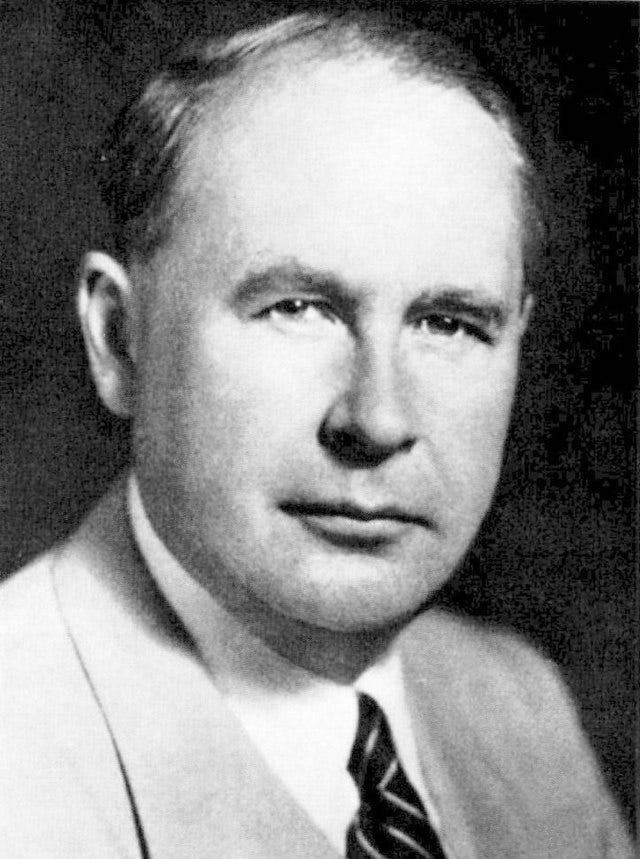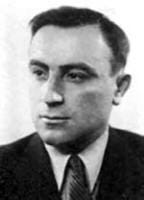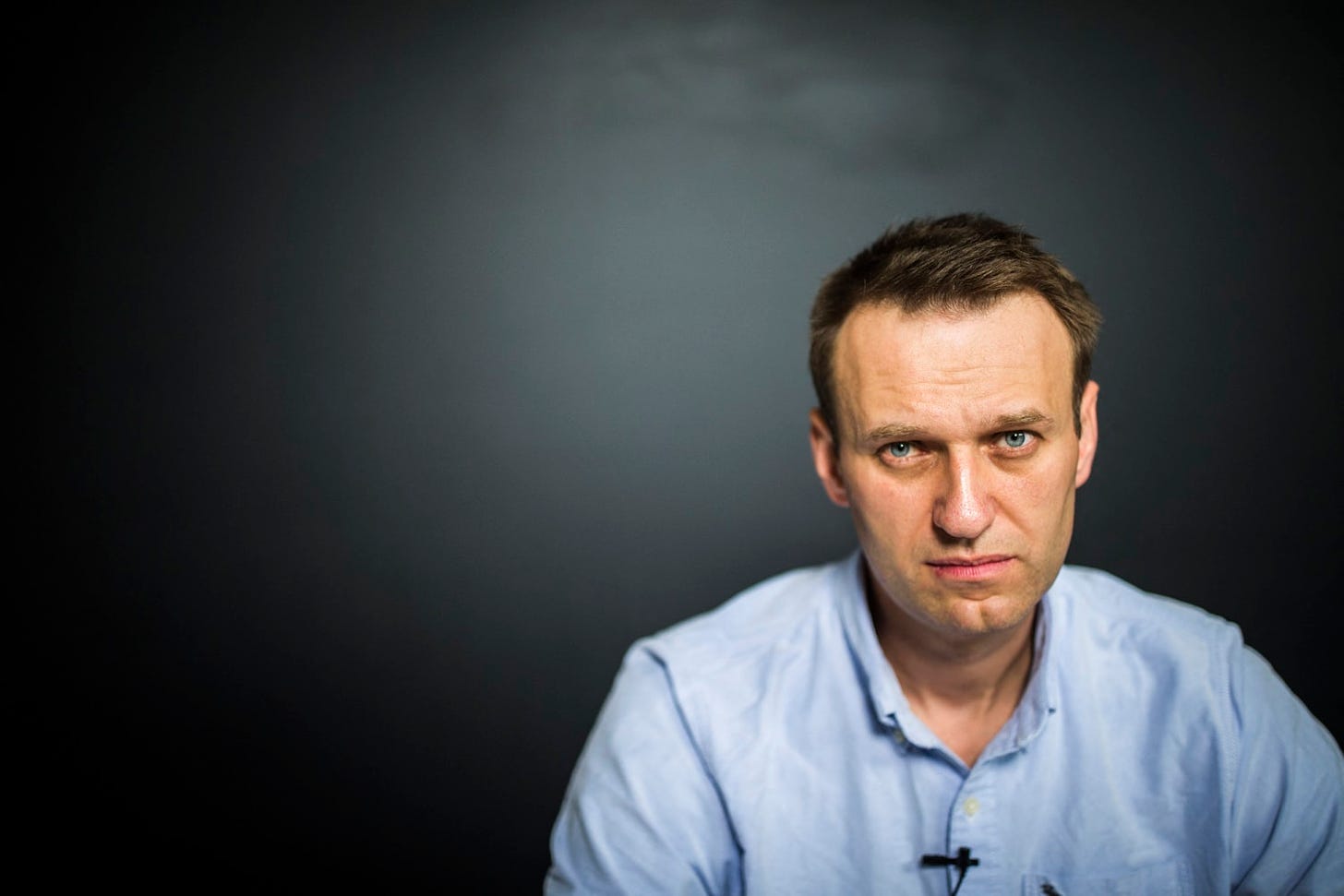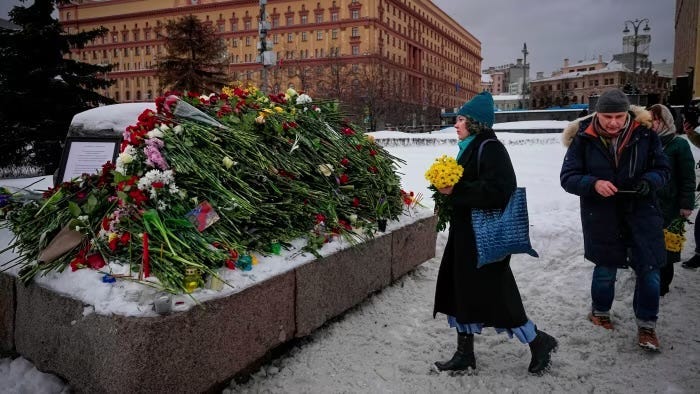RWI-70 1-2024
EXCLUSIVE - The Swedish Security Police suspected that Swedish Ambassador Rolf Sohlman’s longtime backchannel to the Soviet government was one of the KGB’s most ruthless foreign agent recruiters • Swedish archives yield new and important clues about additional Swedish and Russian archival collections that contain information concerning the official handling of the Raoul Wallenberg case, including possibly Wallenberg’s fate • “The FAST Affair”: New information from Swedish archives reveals a previously little known espionage case from 1960, involving the Swedish IB agent and sea captain KARL JOHAN FAST • The death of Alexei Navalny • A French documentary chronicles the history of the GULAG • SAVE THE DATE - A series of seminars to be held in Stockholm to mark the 80th anniversary of the Holocaust in Hungary and Raoul Wallenberg’s humanitarian mission to Budapest • Tablet Magazine - Rabbi Ammiel Hirsch: “Stop enabling the Antisemites”
PLEASE NOTE - Today’s circular comes in two parts. This article will be available in a separate post:
The Swedish Security Police suspected that Rolf Sohlman’s longtime backchannel to the Soviet leadership was one of the KGB’s most ruthless foreign agent recruiters
Susanne Berger February 20, 2024
The long serving Swedish Ambassador to Moscow Rolf SOHLMAN was feared to have a close association with Colonel Panteleymon Ivanovich TAKHCHIANOV (codename “Hasan”), one of the KGB’s most notorious and experienced counterintelligence officers. Reports about their exchange, including in the Raoul Wallenberg case, must continue to exist in Russian archives.


Dear Friends and Colleagues -
We begin 2024 with interesting and important news. This year promises to be a fateful one. I wish all of us only two things - Health and Peace.
The past feels once again very present.
2024 marks the 80 anniversary of Raoul Wallenberg’s humanitarian mission to Budapest and January 2025 the 80th anniversary of his disappearance in the Soviet Union. With these anniversary dates in mind, we plan to commemorate Wallenberg’s legacy of exceptional physical and moral courage in the face of evil, as well as his still not fully resolved fate as a political prisoner in Russia all year long.
SAVE THE DATE - in September 2024 we will co-host a series of seminars about Raoul Wallenberg in Sweden. Together we will explore the universal lessons of the Holocaust, honor the many unsung heroes who made the 1944 Swedish rescue mission possible, and outline the contemporary relevance of Wallenberg’s activism. More info to follow shortly!
Please do not forget to share the international public appeal about Raoul Wallenberg as much as possible in your contact network and on social media!
Website www.wewanttoknow.net
E-mail info@wewanttoknow.net
We have already received the two sets of records as a contribution, including one collection from the Holocaust Memorial Center in Budapest - a sincere thank you for that! So, please get the word out. Please note that the international appeal is now available also in Hungarian and Hebrew.
“The prisoner died suddenly in his cell”. “No autopsy report is available.” The phrases sound eerily familiar. The death last week of Alexei Navalny is deeply disturbing, but not surprising. Perhaps the most chilling aspect of this tragedy is that it shows how emboldened Russian President Vladimir Putin has become - he has managed to rid himself of his most important domestic political opponent at this moment precisely because he felt he could do so with little consequence.

Christo Grozev, a lead researcher with Bellingcat which traced Navalny’s 2020 poisoning to a special unit in the Russian Federal Security Service (FSB), announced that the group will conduct an independent investigation.
“Navalny showed Russians what civic courage looks like,” the author and political commentator Anne Applebaum wrote. “Putin wants to show Russians that courage is pointless.” This should give all of us pause - democratic countries look ineffective and powerless to stop even the most egregious human rights violations, including those committed against their own citizens. Gary Kasparov recently stressed this very point, highlighting Putin’s success at promoting disinformation and his ability to sow discord among democracies’ civil society. As Kasparov sees it, the use of moral equivalency is the key to the success of Russia’s propaganda machine. “I call him ‘merchant of doubts’,” he said in a recent interview. According to Putin, Kasparov continued, there is no clear right or wrong. “(Putin says) yes, maybe we lie, but everybody lies. So, the truth is ‘unknown’, because there are so many versions of it. And that brings the free world down and gives a huge advantage to the other side that does not care about the rule of law or international treaties. We keep failing to impose the rules and regulations that helped us during to the Cold War and we are voluntarily sacrificing our biggest advantage - our adherence to the values of the free world.”
If you - like me - felt at times conflicted about Navalny’s political ideas, I recommend Masha Gessen’s 2021 article in the New Yorker in which she examines in detail the evolution of Navalny’s personal and ideological views. For a personal portrait of Yulia Navalnaya, Alexei’s wife, have a look at Julia Joffe’s article from 2021 in Vanity Fair. As Max Seddon, the Financial Times correspondent in Moscow noted on X (formerly Twitter), the fact that mourners left flowers in honor of Navalny at a memorial for victims of the Gulag outside the old Lubyanka headquarters of the FSB (the large building in the top left of the photo below), was both highly symbolic and also remarkable, given the level of repression of such demonstrations in today’s Russia. The focus now shifts to the fate of the many other imprisoned dissidents in Russia, and the concerns for Western hostages like Paul Whelan, Alsu Kurmasheva and Evan Gershkovich. The recent arrest of a German citizen possibly signals Russia’s intentions to apply more direct pressure for a prisoner swap for Russian citizen Vadim Krasikov imprisoned for murder in Germany since 2019.
Since we are focusing on the links between the present and the past, I want to draw your attention to an impressive French documentary about the Soviet GULAG - it offers a detailed overview of the history of Soviet era repression of political dissidents and any member of civil society who could be viewed as “problematic” for the regime. The cruelty of the punishment and the terrible suffering of the victims finds a grim reflection in the treatment of today’s political prisoners in Russia and the world over - a searing reminder of autocracy’s steady comeback.
As the crisis in Gaza continues, our thoughts are with the hostages and their families. Two weeks ago, Israel announced the tragic news that 31 hostages had lost their lives. Just a few days ago, the IDF managed to free two hostages. The Raoul Wallenberg Centre for Human Rights recently filed a 1000-page legal brief with the International Criminal Court, describing “the perpetration of war crimes and crimes against humanity by Palestinian terrorists, including hostage-taking, enforced disappearance, torture and rape.” At the same time, negotiations between Israel and Hamas to reach a ceasefire continue. Meanwhile, the civilian population in Gaza is suffering in horrendous circumstances. The situation is especially acute for the children who are, by definition, innocent. I urge you to read Robert Reich’s recent post on Substack - regardless of if you ultimately agree or disagree with his perspective.
The spiraling violence leaves everyone heartbroken and anxious about the future. We simply have to find a way back to our common humanity. Democracies must get passionate about the defense of humanistic values and be more determined in countering autocratic forces. That is the lesson of Nazi Germany, that is the lesson from Stalin’s Russia, and that is the challenge before us now. I would like to share an article written by Rabbi Ammiel Hirsch, for reflection and discussion, regarding how to counter some of the root causes of Antisemitism and hatred of “the other” in new and more effective ways. This will be all the more important for the U.S., as it faces a tense election year, with serious global implications. Rabbi Hirsch is senior rabbi of Stephen Wise Free Synagogue on Manhattan’s Upper West Side.
We will release several articles throughout the year, highlighting the fact that much information about Raoul Wallenberg remains to be uncovered in international archives. The first article in this series - about the contacts of the long serving Swedish Ambassador to Moscow Rolf Sohlman with a suspected senior KGB officer in the early 1960s - shows that even with Russian archives currently inaccessible, Swedish records yield important clues to previously unknown files in Russia that can contain important new details about the official handling of the Wallenberg case, including possibly information about his fate.
I want to stress that while Ambassador Sohlman appears to have been the target of a KGB operation, it needs to be established what exactly this approach entailed. Nor does it suggest in any way that Sohlman was disloyal. However, the new findings bring to light a new facet of Sohlman’s contacts with Soviet representatives in the Wallenberg case and other policy matters which opens up new and interesting avenues of follow up research.
An in-depth review of Swedish Security Police and Foreign Ministry records also revealed the case of a previously virtually unknown Swedish espionage case. The Swedish IB agent and sea captain KARL JOHAN FAST was detained in the Soviet Union in 1960. He was released in 1961, yet his file in the archive of the Swedish Security Policy remains entirely classified. The case has interesting implications for the Wallenberg investigation and the search for other Swedes imprisoned in the Soviet Union. The new findings underscore once again the power of research - and the fact that important historical records continue to exist in Russian, Swedish and other international archive collections and that one of the oldest missing person cases can almost certainly be solved. Eight decades after Wallenberg’s disappearance, there is an urgent need for transparency and unhindered access to information.
The full-length article is available as a separate RWI-70 circular/ SUBSTACK post.
You can find a short version of this article here - https://www.academia.edu/115159052/The_Swedish_Security_Police_suspected_that_Ambassador_Rolf_Sohlmans_backchannel_to_the_Soviet_government_was_one_of_the_KGBs_most_ruthless_foreign_agent_recruiters.
A great thank you to everyone who has provided much needed help and advice regarding the current research. I want to extend extra-special thanks to 99-year-old Sid Shapiro who, despite fighting serious health problems, still travels to the U.S. National Archives on a weekly basis and has helped to track down important leads regarding additional documentation in the Wallenberg case. More about his efforts in the coming weeks.
Almost forgot - despite numerous reminders, the Swedish Ministry of Foreign Affairs has yet to restore the deleted content about Raoul Wallenberg and other Holocaust related issues on the official Swedish government website. Swedish officials have also not announced any decision if the extensive online database of Swedish and Russian archive documentation will be repaired. The question has now been pending unanswered for close to four years. The most recent research findings are an indication how helpful such a restoration would be. The website of the Swedish Holocaust Museum still shows only one entry for the search term “Raoul Wallenberg” in Swedish, none in English.
Best wishes to all of you -
Susanne




